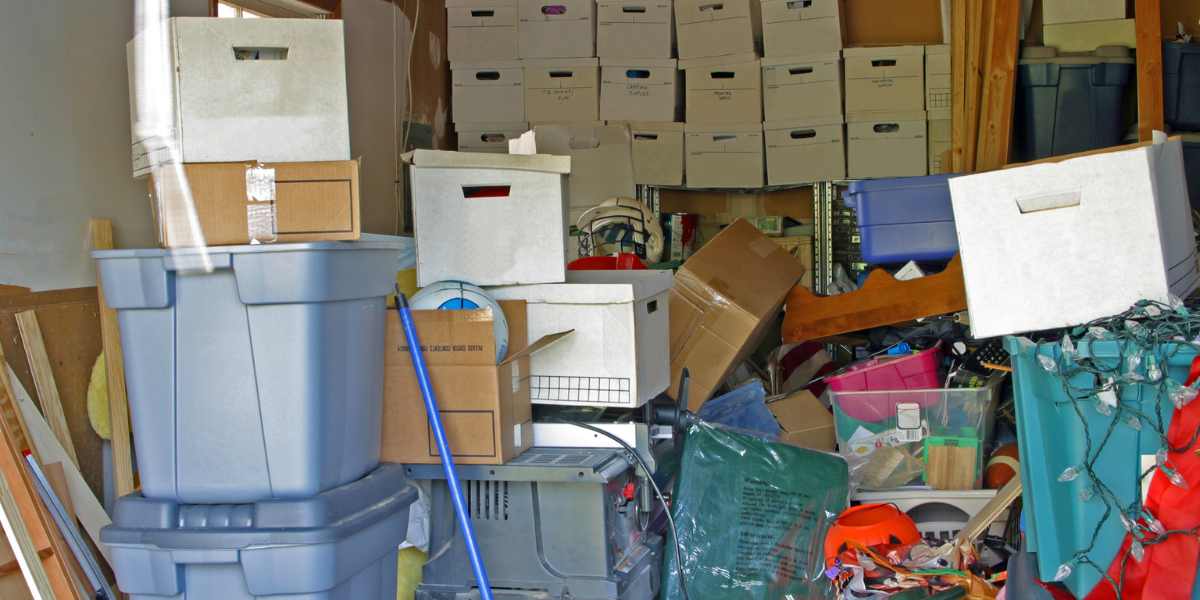
For many of us, life has been a journey defined by the things we’ve gathered along the way. Whether it’s the furniture that once filled a family home, the old toys and memorabilia of a childhood long past, or the countless gifts from well-meaning relatives, our belongings accumulate over time. At some point, we look around and wonder: how did I end up with all of this stuff? And what should I do with it now?
If this resonates with you, you’re certainly not alone. As a professional organizer, I’ve encountered countless clients struggling with the same dilemma. They find themselves holding onto items they’ve collected over the years, along with those “inherited” from family members. Recently, I worked with a client who was storing boxes and boxes of photos that her deceased parents had been holding onto. When she finally decided to go through them, she realized that 90% of the photos contained images of people who she didn’t even know. These boxes had been occupying the better half of her attic for the past decade, taking up valuable space, when they had no significant connection to her.

Easing the Burden on Loved Ones
For families dealing with the emotional and physical challenge of sorting through a loved one’s belongings after they’ve passed, the process can be draining. In addition to bearing the responsibility for deciding the fate of items, the challenge is finding enough time and energy to process the multitude of items left behind. Wills and trusts usually dictate the fate of big tag items but often neglect the detailed instruction for how to handle meaningful items that may not have monetary value such as memorabilia, household items, and clothing. Imagine your spouse or children having to make these tough choices on your behalf, struggling to figure out who would have wanted your antique dishes or cherished copper cookware. It’s hard enough to mourn a loss without the added stress of deciding what to do with all of someone’s possessions.
I’ve personally felt the weight of this when cleaning out my mother-in-law’s estate. I came across a collection of old report cards that her mother held on to from the 50’s, along with old poems and artwork that had been given to her by her children. I also found dozens of boxes of old bank statements sprinkled with important financial information. Some of these things are not just stuff; they are symbols of memories, relationships, and chapters of life. But at what point does “stuff” become a burden and vital information get lost in the shuffle?
By starting the organizing process now, you can ensure that the items you value the most go to those who will appreciate them and that important documents are appropriately secured. Whether it’s a treasured heirloom or something you no longer use, having a plan for distribution takes the guesswork and anxiety out of it.

Experience Clarity, Peace, and Less Clutter
It’s not just about making things easier for others; organizing can be a profoundly liberating process for you too. One of the biggest benefits of decluttering your space is the sense of clarity and peace it brings. Less clutter means fewer distractions and a more serene environment.
Think about it—when your surroundings are full of things you don’t need or use, it can feel chaotic and overwhelming. Getting rid of unnecessary items can free up space, both physically and mentally. Organizing is an opportunity to reflect on what truly brings you joy and what adds value to your life.
Downsizing for a Move or Sale
Organizing is especially crucial when you’re preparing for a move, renovation or planning to sell your home. Whether you’re moving to a smaller space or simply looking to make the transition smoother, decluttering can significantly ease the process. The fewer items you have to pack, move, and store, the less stressful the relocation/renovation will be. Plus, if you’re selling your home, a clutter-free space is essential for creating an inviting atmosphere that potential buyers can envision themselves in. Decluttering helps you showcase the true potential of your home by highlighting its best features, rather than letting excess belongings distract from them. In the end, a well-organized, less crowded space can also help you settle in faster and feel more at home in your new environment.

Financial and Emotional Benefits
One often overlooked aspect of de-cluttering is the potential for financial gain. Whether it’s selling valuable items, donating to charities, or even hosting an estate sale, you may find that some of your possessions hold monetary value. This could provide a financial cushion or at the very least, give you a sense of purpose in the process. When working with a couple in Jamestown, they were quite apprehensive and overwhelmed when it came to decluttering and organizing their basement. That all changed when we uncovered valuable collectables that earned them close to $2,000!
For some, it may make sense to contact an appraiser, connect with an auctioneer, and/or host an estate sale. In other situations, the items left behind may be best utilized by a local homeless shelter in need of fresh linens or a women’s shelter in need of furniture and housewares. I personally find it immensely satisfying knowing that the items are going to someone who will truly appreciate them. There are so many local charities that can use these resources that are just collecting dust. Imagine the joy of knowing that your possessions are making a positive impact on others.
The Emotional Value of Letting Go
Letting go of sentimental items can be one of the hardest parts of getting organized, but it’s also one of the most rewarding. You may be surprised to find that items that had a deep sentimental value to you in the past, are no longer serving any practical purpose. By letting go of these items, it allows you to honor those memories while also making room for new experiences. You can decide which items are worth keeping and which can be passed along to others who may cherish them as much as you did.
Okay, now that you are, hopefully, convinced that it might be time to at least start tackling the attic or even the junk drawer, here are some tips to get you started.

Simple Guidelines
Be Patient with Yourself: Work at a pace that is comfortable for you.
Start Small: Begin with one drawer, closet, or one category of items—such as clothes, books, or kitchenware. This will prevent you from feeling overwhelmed.
Set Limits: Don’t try to do too much at once. When going through a category of items such as memorabilia/photos, it is helpful to set a timer for 20 minutes, and you may want to limit your focus to one box/pile at a time. Working in smaller increments makes the process more doable.
Consider Asking For Support: Whether it is a family member or friend, just having someone to keep you company while you sort can be extremely beneficial. If you’re feeling very overwhelmed, a professional organizer can guide and support you through the process, offer tips, strategies and resources to make it less stressful.
Remove Items: Once you have decided to let go of items, it is crucial to take them directly to their destination. The longer the items linger in your home, the greater the chance that they will stick around.
The Process: Remove all items, Sort items into categories, Purge the items that you no longer need and want, Return or Relocate the Items.
Final Thoughts
Organizing is a gift—not just for your loved ones, but for yourself as well. It brings peace, clarity, and the opportunity to pass along meaningful possessions to those who will appreciate them. It’s also a chance to declutter your life and make room for the things that truly matter. By starting now and clearing out the items that no longer serve you, you’re making space for the things that matter most.

About the Author
Nicole Nicoletta is a licensed Realtor with Hogan Associates Christie’s International Real Estate and the founder of Simply Organized Spaces based in Aquidneck Island. During the home sales process she helps clients achieve peace of mind through the process of organizing and decluttering. Her goal is to educate others on the benefits of tackling organization now. She guides clients through the difficult process of cleaning out estates, preparing for renovations, or even assisting in the organization of a home or business. She also connects clients with the services they need including reputable appraisers, auctioneers, charities, donations centers, movers, garbage haulers, and more.

How to Get Rid of Unwanted Items or Hazardous Waste Before Moving
Some say the best thing about moving is the opportunity to leave behind unwanted items and get a fresh start. In some cases, it

Senior Solutions : A Step-by-Step Guide to Selling your Home with Confidence (Part 1)
After months, perhaps years of contemplation and discussions with others, the decision has finally been made to sell your home. The time has come to

Donation Options Every Newport Home Seller Should Know
Your Newport, RI home is under agreement. You’re preparing to move. You realize some of your possessions won’t be coming with you. They’re in good


